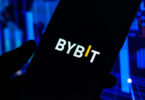Last week digital wallet platform Curv announced its insurance partnership with Munich Re. Assets held in Curv’s wallets are now covered up to the sum of $50m, after last year’s assessment by the German insurance giant.
Curv’s statement cites cyber attacks costing millions of dollars in digital currency, such as the recent hack of cryptocurrency exchange Binance, as motivation for the coverage. Their insurance covers these hacks along with malicious behavior by Curv or any of its staff.
Relatively new on the digital wallet scene, Curv was established last year in Tel Aviv. Meanwhile, Munich Re is one of the world’s leading reinsurers, with its primary insurance arm earning a S&P AA-rating. Curv’s statement claims that an attack on its wallets is extremely unlikely, and that Munich Re’s insurance is partly for peace of mind for customers.
The Israeli firm claims its platform’s unique storage model protects it from attacks of the past. Curv uses Multi-Party Computation (MPC), which eliminates the need for private keys. In traditional cryptographic systems, once the private key is compromised all is lost.
MPC instead uses separate ‘shares’ of a key, distributed confidentially among multiple users, including Curv itself. Only when the correct set of shares are used together can a transaction be performed. This means that a single share being compromised is useless to the attacker. This isn’t dissimilar to the approach by Danish startup Sepior. One of Sepior’s co-founders Ivan Damgård literally wrote the book on MPC.
“By eliminating the private key and adopting a cloud-based model, Curv vastly reduces the overall risk profile of digital asset operations and enables real-time access to assets”, reads the firm’s statement.
“This is where Curv’s insurance backed wallet service and insurance model advances beyond the current industry standard. For a cyber attacker to be successful, they would need to obtain both Curv’s shares and our customer’s at the same moment in time.”
In February Curv raised $6.5m in a round led by Team8 and Digital Currency Group.






